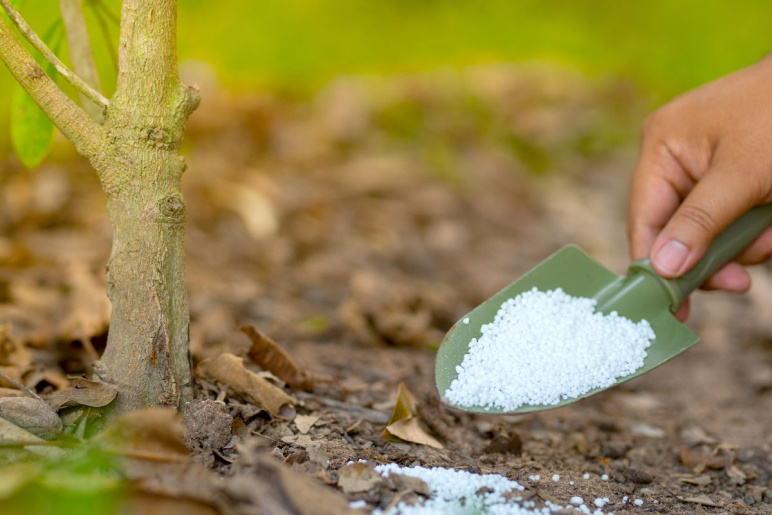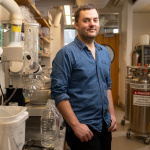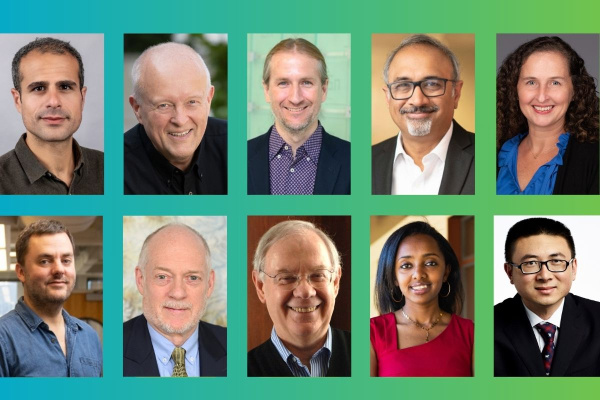Our Research Toward nitrogen-fixing crops: Improving nitrogenase activity in non-diazotrophic hosts

Applying nitrogen fertilizer to support healthy plant growth.
Principal Investigator
Daniel Suess
- Associate Professor
- Department of Chemistry
Daniel Suess graduated from Williams College in 2007 with a BA in chemistry and English. In 2013, he obtained a PhD in inorganic chemistry from Caltech under the guidance of Prof. Jonas Peters. He then joined the laboratory of Prof. R. David Britt at the University of California – Davis for his postdoctoral studies. In 2017 he joined MIT’s Department of Chemistry as an assistant professor and has since been promoted to associate professor with tenure.
Photo Credit for for Head Shot: Bryce Vickmark
Challenge:
How can we engineer crops to obtain nitrogen from air, thereby reducing or eliminating the need for nitrogen fertilizers?
Research Strategy
- Improve the processes by which cells assemble enzymes that obtain nitrogen from air
- Understand the roles of "helper" enzymes in improving the efficiency of nitrogen fixation
Project description
Nitrogen is an essential element for life, and although it is readily abundant—dinitrogen (N2) comprises nearly 80% of Earth’s atmosphere—eukaryotes are incapable of incorporating N2 into biomass because of the chemical inertness of the nitrogen triple bond (N≡N). Only microbes that express nitrogenases—enzymes that convert N2 to bioavailable ammonia (NH3)—can assimilate nitrogen from air. Although this process provides substantial quantities of fixed nitrogen for the biosphere, it is not sufficient to produce crops on a scale that sustains our growing human population. Therefore, humans have turned to nitrogen fertilizers derived from the Haber–Bosch process. Unfortunately, this process substantially contributes to global carbon dioxide (CO2) emissions, and excessive nitrogen fertilization causes numerous environmental and health problems.
A promising approach to mitigate these effects is to engineer crops that express nitrogenase, which would constitute a sustainable method for crop production with minimal use of nitrogen fertilizers and reduce the need for cover crops and crop rotation. In this project, the researchers will study the chemical processes by which nitrogenase is assembled. This knowledge could lead to improved nitrogenase activity in non-native organisms, and ultimately to the development of crops that can supply their own nitrogen.
News
Additional Details
Impact Areas
- Food
- Climate & Sustainability
Research Themes
- Sustainability & Adaptation
- Soil Fertility & Crop Productivity
Year Funded
- 2025
Grant Type
- Seed Grant
Status
- Ongoing

